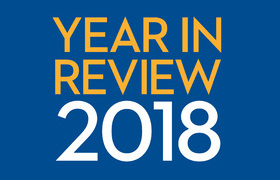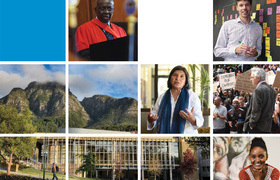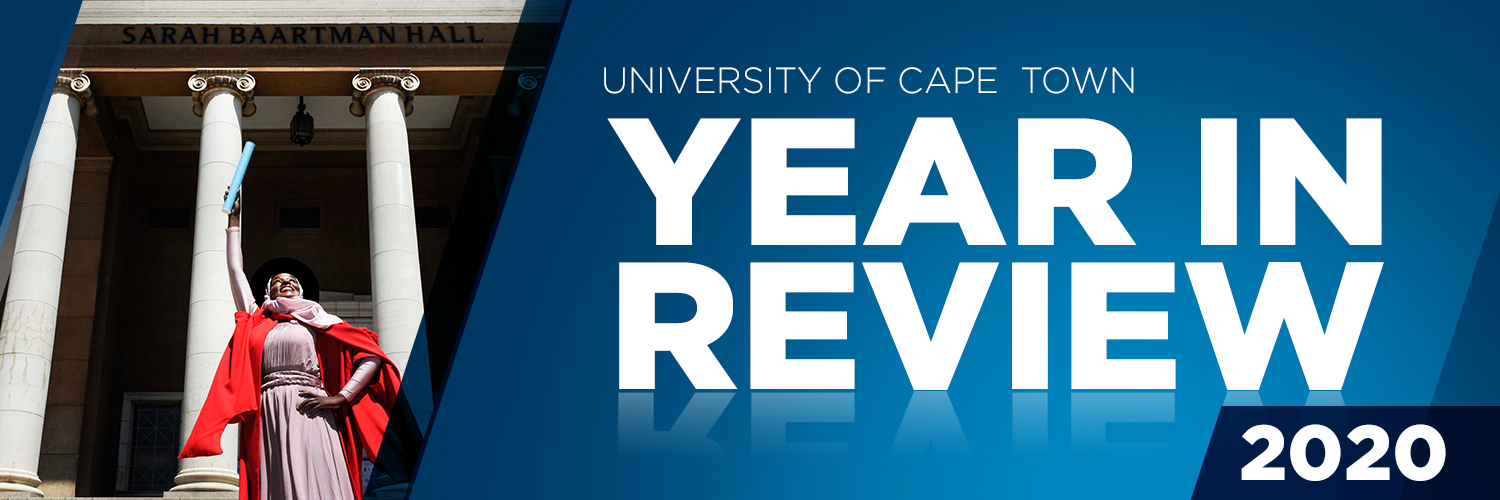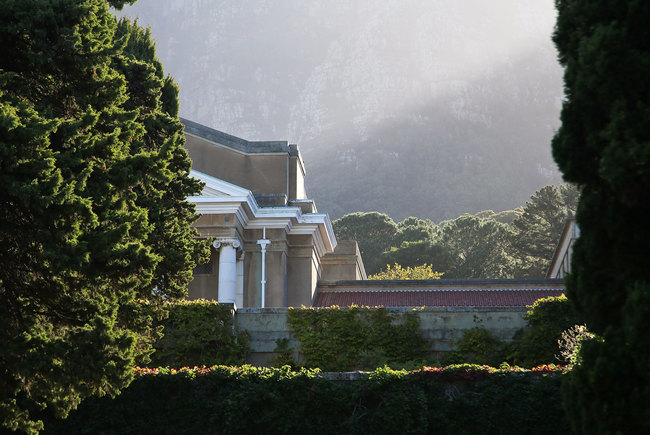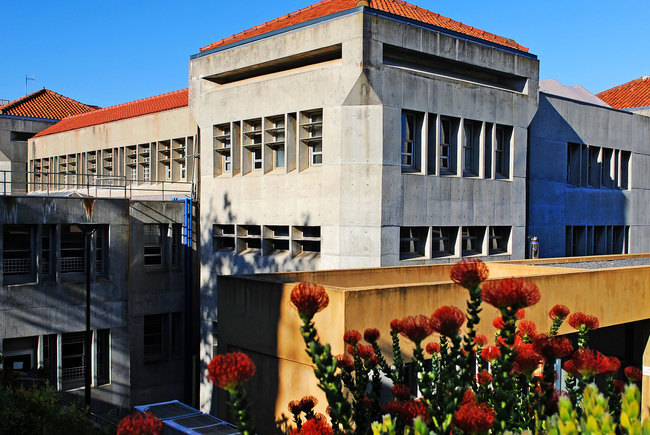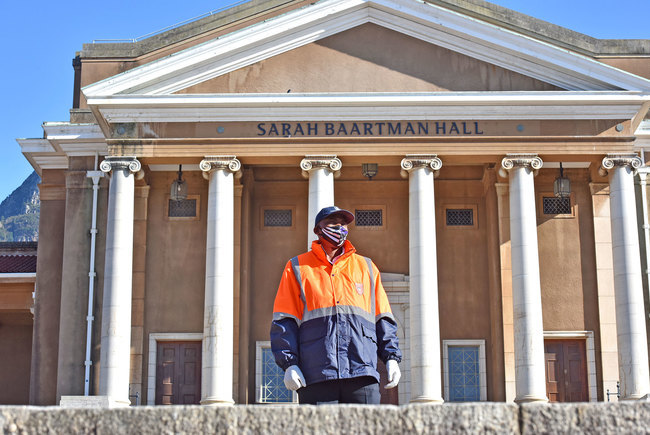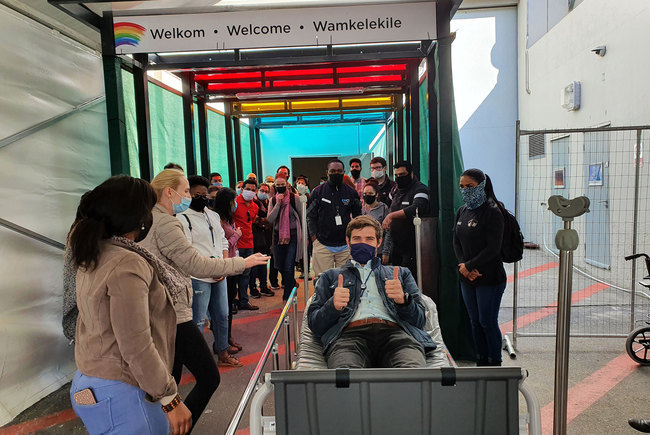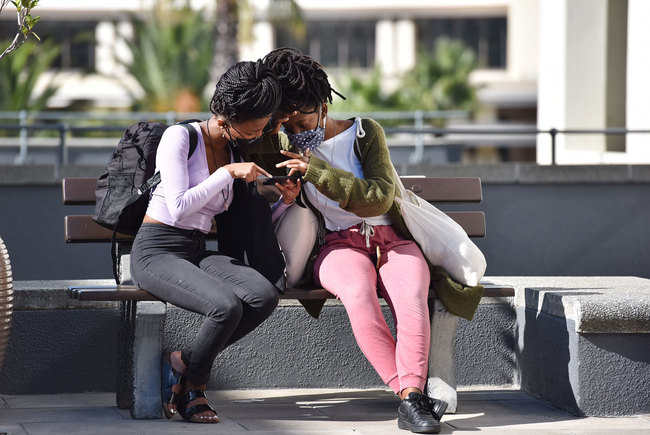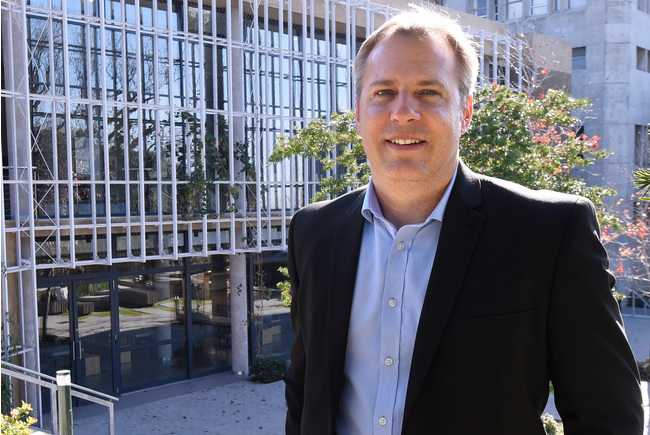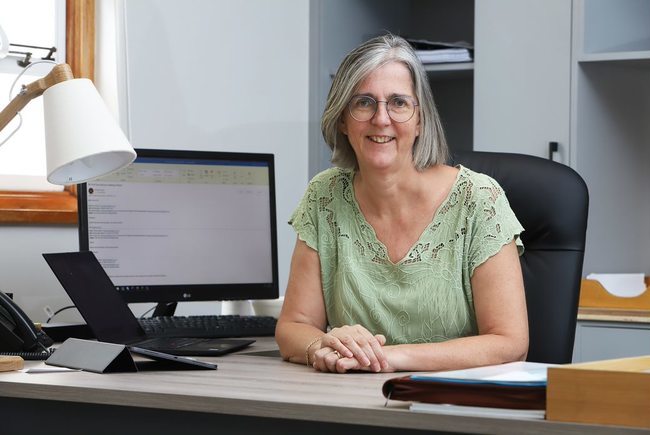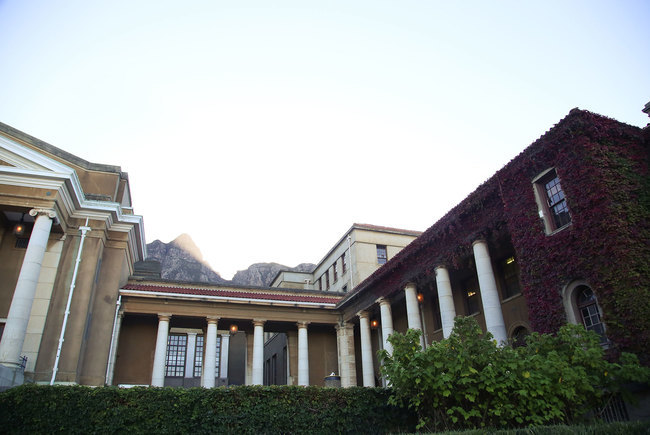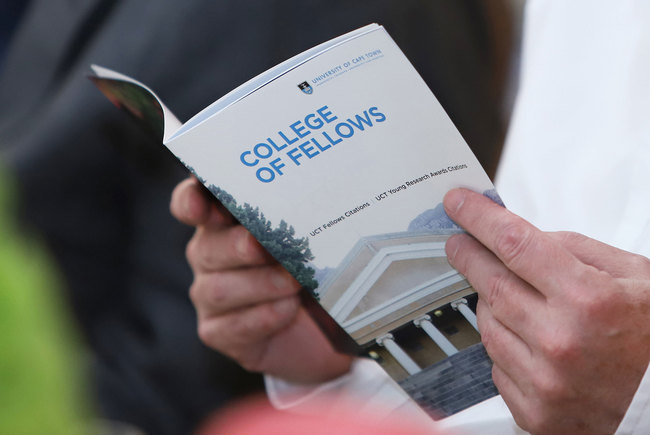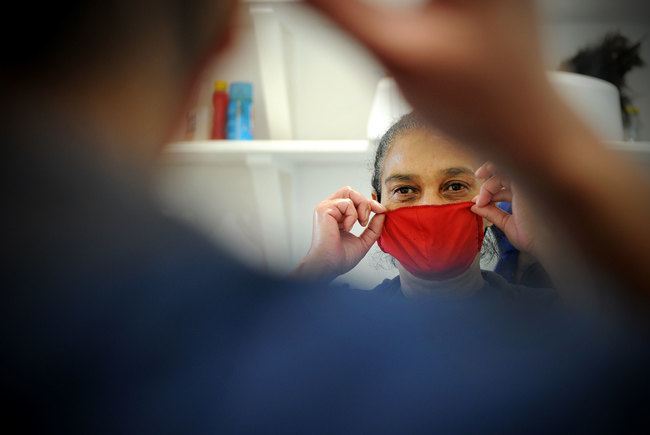Chief Operating Officer’s report
12 November 2021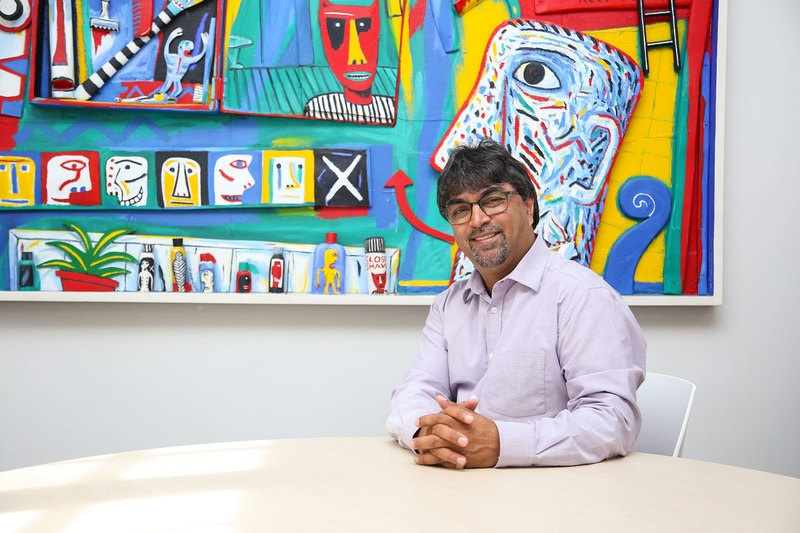
Disruption a catalyst for innovation and change: Dr Reno Morar
2020 tested the entire operating portfolio beyond measure. The COVID-19 pandemic and consequent lockdown regulations represented an unprecedented disruptive event to the university’s business-as-usual model, resulting in a rapid, en-masse shift to remote working, with far-reaching impacts for students, staff and researchers. This both highlighted and increased dependency on the university’s support services, which have become critical to adapting to the rapidly changing landscape amid uncertainty.
Collectively, the Chief Operating Officer’s (COO) team pulled together to ensure that teaching and learning could continue with as little disruption to the academic calendar as possible, under the guidance of the COVID-19 Coordinating Crisis Committee. The focus was on the university-wide rollout of the Microsoft Teams service in a very short time to support collaboration and a complete shift to virtual meetings. The safety and security of campus assets has remained a priority during lockdown with risk-adjusted strategies being executed for the phased return of activity on campus.
Catalysts for change
While the pandemic has brought grief and disruption, it has also served as a catalyst for innovation and change, requiring us to explore models for the “new way of working” and to understand fully the associated legislative, support and enabling requirements.
The submission of the Annual Training Report and Workplace Skills Plan 2021 under the COVID-19 environment was a major success, as was the Human Resources Department managing to recoup four months of Skills Development Levy contributions, as per the COVID-19 relief “holiday" granted by the Education, Training and Development Practices Sector Education and Training Authority (ETDP-SETA). I am pleased to report that we presented the draft Disciplinary Policy and the Policy Addressing Bullying for discussion at Senate, the Institutional Forum and the University Human Resources Committee.
The university’s operational function is largely funded through various grants, including the Council- controlled “block” grant, which is used at the discretion of the university’s Council and management. This grant is intended for operational costs, including maintenance of assets related to university teaching, learning and research activities.
In competition with other universities, the Office of the COO makes additional application for funding through the Infrastructure and Efficiency Grant process (IEG), in which the university enters into an agreement with the Department of Higher Education and Training (DHET) regarding the programmes and activities to be funded and with respect to the funds that will be made available. Funds are allocated in line with the government financial year and the DHET generally disburses between 20 to 40% of the allocation due to universities, with the remaining balance allocated only after a satisfactory progress report detailing the use of the previous year’s allocation has been submitted to the department.
Notably, UCT received all of its budgeted allocations for 2019.
Application for the sixth cycle of IEG funding is currently under way and I am pleased to report on projects funded in the fifth cycle:
UCT Chris Hani Lecture Theatre Refurbishment
The aim of this project is to repurpose the building to accommodate a large, contemporary lecture theatre, a flat-floor study space, a general student centre where key student support services will be provided, and a science student learning centre, linked to a new science faculty administrative suite. The completion date is set for the end of October 2021.
UCT School of Education
With a project budget of R90 million, a new School of Education building is under construction on lower Middle Campus to accommodate postgraduate teaching and training for teachers within the Western Cape Province. City of Cape Town planning approval has been granted. The practical completion dates are 16 November 2021 for Section A (northern building), and 10 December 2021 for balance of the works.
Avenue Road Residence
Valued at R222 million, UCT’s new Avenue Road Residence in the Mowbray precinct provides 500 additional student beds – an invaluable addition to the university’s student accommodation. The residence is part of UCT’s extended plan for the Mowbray precinct, which, once completed, will boost student accommodation by 2 000 beds. The first-tier residence represents phase one of a planned cluster of developments in this area, which includes a separate multi-residence dining hall for first-year students. As there are houses on site that have heritage significance, UCT has obtained heritage approval to ensure that the new development impacts minimally on these.
Network Renewal Project Report
The demand for reliable Information and Communication Technology (ICT) services on campus continues to grow exponentially. The entire university community is critically dependent on the network to provide these services. UCT’s multi-year Network Renewal Project will extend well into 2021. The project is partly funded by a DHET grant of R78 million, with the funding balance sourced from a combination of Council-approved project funding (R30 million) and ICTS’s annual infrastructure life-cycle renewal funds (R60 million). UCT has expended the DHET grant funding. The project’s key objectives are to refresh the network architecture and infrastructure to mitigate risk, increase speed of the network, improve support and monitoring security and resilience, add several advanced services and sustain ubiquitous wireless access within the entire university campus.
Water Sustainability Project: R80 million (UCT contribution: R10 million)
Given the severe drought recently experienced by the Western Cape, UCT as a major water user (catering for some 30 000 students) recognises the critical need for a water sustainability approach that will ensure resilience in the face of long-term water scarcity in a region that is likely to become increasingly drought-prone.
In addition to the moral and environmental responsibility, the cost of water and water services in the city is rising annually and is likely to treble within the next five years. UCT therefore requested funding to develop a sustainable water management strategy and implement systematic interventions to reduce municipal water consumption in student residences, to allow for water saving and water recycling through a range of “fit-for-purpose” interventions. The project progress thus far has included the development of UCT’s sustainable water management strategy, the conclusion of several enabling projects and the development of tender specifications for the pilot water-saving projects. This DHET-funded project will enable the implementation of more than 50 sub-projects over the next three years, saving millions of litres of municipal water.
In addition, the following donor-funded projects are under way:
IDM Extension Project
The Department of Higher Education and Training has approved UCT’s master plan for seven new buildings and developments, which are currently under way and in various stages of completion. Two of these buildings are located at the Faculty of Health Sciences and one at the Institute of Infectious Disease and Molecular Medicine (IDM) – the IDM Extension Project.
This will increase laboratory space as well as provide additional open-plan office space with a central strip of cellular offices and meeting rooms. The project arose out of the IDM’s expanded research programme and increased demand for workspace for technicians, scientists and administrators. The anticipated completion date is the end of July 2021.
New d-school building
The Hasso Plattner School of Design Thinking (d-school), Africa’s first school dedicated to design thinking, is under construction on UCT’s Middle Campus.
The new building aligns with UCT’s Vision 2030 to position itself as a global university in Africa, focused on unleashing human potential for a fair and just future.
Environmental sustainability is an essential criterion and where new facilities are planned, UCT remains focused on providing green buildings. This includes the School of Education (targeting a 4-star rating). The d-school (targeting a 6-star rating, the highest Green Star rating attainable) will be a flagship green building for UCT and the African university community.
Hybrid working spaces
Emerging staff survey results indicate that many staff favour a remote or hybrid working model, and that most support functions can be performed effectively from remote work settings. The workspaces of the future will have far-reaching implications, informing the investment mix in the university’s ICT and property portfolios, requiring mitigation of constantly evolving information and cybersecurity threats targeting end-users on home networks and addressing occupational health and business continuity requirements.
However, as a result of insufficient structures at home or unsuitable home environments, many staff were unable to adapt to the remote-working model, causing fear and anxiety. This was exacerbated by the sense of social isolation for many, disrupted work, balancing family routines, economic instability, grief, loss and Long COVID.
These factors have contributed negatively to the mental health and well-being of UCT staff, which has emerged as a key area of focus. There has been increased collaboration between Human Resources and the Office for Inclusivity & Change to streamline services and offer better support to staff, to mitigate the potential long-term impacts on UCT’s sustainability.
Challenges and risks
The portfolio faces increasing challenges and risk linked to attracting and retaining innovative staff with the skills and competencies needed for the digital age and the future ways of working and learning. Globalisation due to the shift to remote working, and notable disparities in earning potential in higher education versus the private sector, are two factors driving an increased churn rate of our most skilled staff.
Addressing this challenge requires a commitment to exploring viable strategies for attracting, developing and retaining the skilled professionals required to realise the university’s Vision 2030.
Innovation and experimentation
At the same time, the rapid move to remote working created opportunities for innovation and experimentation that fit with UCT’s Vision 2030 and its conceptualisation of digitally enabled education that will underpin its academic offerings into the next decade.
The COO’s portfolio remains aligned to Vision 2030 to enable the massive transformative purpose of “unleashing human potential for a fair and just society” and the strategic pillars, which include the achievement of a sustainable campus.
It’s been a year of many challenges and opportunities, but from it emerged new lessons; and many of these lessons will support and guide our future endeavours.
 This work is licensed under a Creative Commons Attribution-NoDerivatives 4.0 International License.
This work is licensed under a Creative Commons Attribution-NoDerivatives 4.0 International License.
Please view the republishing articles page for more information.
Annual reviews
Year in Review 2020
12 Nov 2021
This was the year COVID-19 stretched us, thrust us into the unknown and challenged us to think of new ways of doing and being. It was a year we moved to remote teaching and learning, with many of our colleagues working remotely. This edition is dedicated to the men and women who worked hard to ensure that the education programme continues, and students who worked equally hard under unusual circumstances.
Year in Review 2020

Q and A with Professor Loretta Feris, Deputy Vice-Chancellor: Transformation
12 Nov 2021 - >10 min read
Q and A with Associate Professor Lis Lange, Deputy Vice-Chancellor: Teaching and Learning
11 Nov 2021 - >10 min read
Previous Editions

